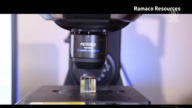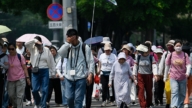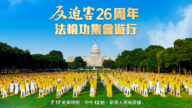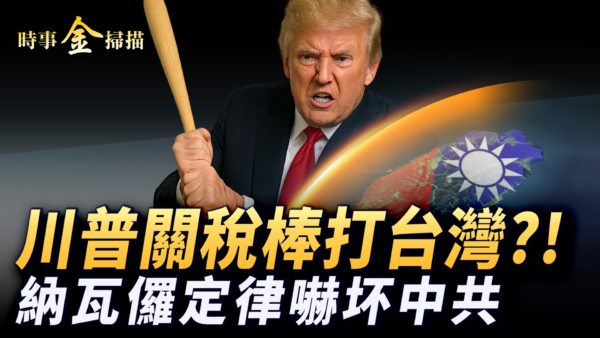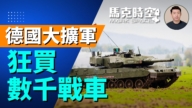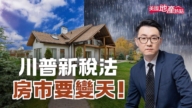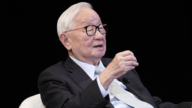【新唐人2013年10月03日讯】近日中共国务院参事、中央财经大学税务学院副院长刘桓在一次讲座上透露,征收遗产税可能被写入十八大三中全会文件草稿。专家指出,征收遗产税的前提是财产申报制度,中国由于大量官员存在灰色收入和隐匿的财产,征收遗产税将遭遇强大阻力。并且,在中国现行的土地公有制下,房产只有70年使用权而无所有权,从法理上来说跟遗产税也是互相矛盾的。
专业从事税务工作的北京注册会计师杜延林认为,遗产税征收是有必要的,因为遗产税的目的是向富人征税,缩小贫富差距。但是中国目前企业所得税和个人所得税所占比例小,依靠的主要是由消费者和普通平民来缴纳的间接税。
杜延林还指出,遗产税的征收需要一个环境和一些条件,当前中国可能不具备。比如一个最基本的条件是,要有一个财产申报制度。
北京注册会计师杜延林:“我们一直在呼吁官员公开他的财产,进行财产申报,这个是一个很大的阻力实现不了。如果官员腐败不去申报财产的话,那么这些富人的财产是无法从信息中去得到财产。只能有些最明显的比如说房产之类的去征收,但是即使房产,现在的房产登记制度也不能完全准确的把我们个人房产的正确信 息登记出来。比如房叔,房姐的出现。”
早在2004年9月,中共财政部就出台《中华人民共和国遗产税暂行条例(草案)》,并在2010年进行了修订。但是遭遇各方阻力,时至今日也未付诸实施。
北京天则经济研究所副所长冯兴元指出,推行遗产税将涉及到腐败程度的曝光,首先会遭到高级官员的反对。
北京天则经济研究所副所长冯兴元:“短期内可能还是不行。因为阻力会非常大。遗产税的基础还是你财产要分割清楚。但是如果财产要分割清楚的背后,实际上党政干部的很多财产都要有登记,无论公开不公开,都要登记。这个登记的话,会遭到政府官员高级官员,首先会反对。这里面涉及到个人利益,包括他可能跟腐败程度的曝光,都会有挂钩。”
所谓遗产税指的是完全属于自己的东西交给别人。中共声称,征收遗产税是要和国际接轨,但是,中共制定了土地国家所有制,房子的产权只有70年的使用权,没有所有权。杜延林指出,中共制定的大量法律,都存在法理上的矛盾之处。
杜延林:“你想想中国的法律体系,本身就不是一个真正的法律。它是一个工具,政府的工具。因为从严格法律上说,各种法律的法规的法理必须首先是清楚的,产权是很清楚的。但中国的法律本身是一个不完整的法律,一个不彻底的法律。它只是政府用来做事情的工具,所以说它就存在大量的矛盾。”
杜延林认为,这将会导致大量问题出现。他举例说,到50年以后,房子的使用年限还剩很少的几年,子女面临的问题是,继承房产还是不继承?如果说继承的话,那么会缴大量的遗产税。并且,怎么去评估房产剩余的价值?
杜延林表示,要解决这些问题,需要对整个产权制度进行改革。但他相信,当局是不可能将土地使用权变成永久所有权的。
杜延林:“所以如果失去了这两个绝对支配权,那么它的土地财政制度就崩溃,那么中共当局的经济支柱,地方政府财政的支柱就是土地财政,就是靠房价,卖土地来取得。如果它没有70年的循环,那么到70年以后,土地使用权失去以后,它就无法控制土地经济了。所以这个可能性不大。”
关于征收遗产税产生的这些矛盾和问题,归根结蒂,都是所谓的公有制造成的。中共的所谓农村集体所有和全民所有的概念,在外界看来都是很模糊又很荒唐的。产权必须细分到每个人,法理上才能清楚这个东西归谁。专家一致认为,必须土地私有化,才能解决遗产税的法理困境。
采访编辑/秦雪 后制/陈建铭
China’s Inheritance Tax Contradicts State-Ownership of Land
Liu Huan, Cabinet advisor and deputy director at Central
University of Finance and Economics, revealed that
inheritance tax was written into a draft document for the 3rd
Plenary Session of the 18th Chinese Communist Party (CCP).
Experts say that the premise of inheritance tax
is the property declaration system.
Many officials received gray income and
possessed hidden properties,
thus, levying inheritance tax will face great opposition.
Under current laws, people can only have a 70-year leasehold
on real estate, which contradicts the inheritance tax law.
Du Yanlin, a professional accountant in Beijing,
says it’s necessary to launch an inheritance tax.
It purpose is to tax the rich, narrowing the wealth gap.
Currently, in China, the company and individual income tax
only take a small percentage.
The regime relies on indirect taxes
from consumers and citizens.
Du Yanlin says that levying an inheritance tax needs
an environment and appropriate conditions, neither is available.
For example, a basic condition
is the need for a property declaration system.
Du Yanlin:"We’ve repeatedly urged the disclosure of
officials assets, they need to declare their properties.
However, it is hard to carry out.
If corrupt officials don’t declare their assets, we can’t obtain
the information on rich people’s property.
The only way to collect the tax is from registered properties.
However, the current property registration system can’t
accurately reflect the individual information, with phenomena
such as ‘Uncle Housing’ or ‘Sister Housing’ appearing."
Since September 2004, the Ministry of Finance had written
a draft code for the inheritance tax.
It was revised in 2010.
However, it faces different obstacles from all sides,
and it still hasn’t yet been implemented.
Feng Xingyuan, Beijing Unirule Institute of Economics
deputy director, says that carrying out inheritance tax will
involved the exposure of corruption.
It will first be resisted by senior officials.
Feng Xingyuan:"It’s unlikely to be implemented anytime soon.
Because there many huge resistances.
Inheritance tax is based on clearly registered property.
To achieve this, many cadres
need to register their properties.
Whether openly declared or not,
their assets must be registered.
Thus, regime officials and senior officials will be first to resist.
As it relates to their vested interests,
their corruption could be exposed."
China’s inheritance tax refers to
giving your own property to others.
The CCP claims that the inheritance tax
is to accord with international standards.
However, the CCP owns the land.
People can only have a 70-year leasehold,
but they never own it.
Du Yanlin says many laws
formulated by the CCP are contradictory.
Du Yanlin:"You think about it, China’s law system itself
is not [based on] real law.
It is a tool, the regime’s tool.
From legal point of view, each regulation must be clearly
indicated, the ownership of the property must be clear.
However, China’s law itself is incomplete, or not thorough.
It is just a tool using by the regime,
thus it has many contradictions."
Du says that this will cause many problems.
For example, after 50 years, few years remain on the leasehold.
Children will face questions on whether to take the property.
If they take it, they have to pay many taxes.
In addition, how can the property’s remaining value be assessed?
Du Yanlin says reforming the entire system of property
rights can resolve these problems.
But he says that the regime is unlikely to change
land access to permanent ownership.
Du Yanlin: “If the authorities lose the absolute right
of land control, the land finance system will collapse.
Then the financial support for central and local regime
will rely on housing prices and selling land to obtain finances.
If there is no 70 year cycle, the authorities will lose the
use right to the land and cannot control the economy of the
land after 70 years. So it is impossible.
Ultimately, estate taxes incurred on these contradictions and
problems are the result of the so-called public ownership.
CCP’s so-called"rural collective ownership"and the “owned
by the whole people"concepts are very vague and absurd.
Property right must clearly indicate each individual person,
only then can the law judge who the property belongs to.
Experts say that only the privatization of land can
resolve the estate duty problem.











